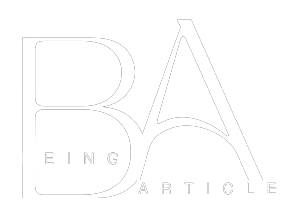Article Consignment
Consignment can be an excellent option to sell things you don’t need or don’t want and make some extra cash. When you consign, you hand your possessions to a retailer or person who will sell on your behalf. They receive a portion of the sales price as a commission. Although consignment is an ideal option, it’s essential to know the process, the potential hazards, and other options before deciding whether it’s the right choice for you.
Below we will look at the fundamentals of consignment, consider the advantages and disadvantages, provide strategies to be successful, and discuss alternatives to consignment to assist you in making the right option for your particular situation.
How Consignment Works:
The consignor owns the sold merchandise and supplies the items to the consignee or the retailer. The consignee has the right to market the goods on behalf of the consignor. The latter receives a portion of the sale price as a commission.
The Consignment Process
The consignment process typically starts with the consignor taking their goods to the consignor. The consignee will examine the items and decide if they fit their store well. If they are accepted, the consignee will determine the price of the items and then display them for sale. If the item is sold and the buyer is paid, the consignee gets part of the sale amount as a commission and will pay the balance on behalf of the buyer.
Legal Considerations For Consignment
Consignment agreements must be signed in writing and should include particulars like the percentage of the purchase price that the consignee will get and the payment schedule, and any additional fees or penalties which may be charged. In addition, consignors should consider protecting their possessions if they suffer damage or loss when they are in the control of their consignee.
The Pros And Cons Of Consignment Shopping
Consignment shopping is the business model in which the retailer sells products for the owner’s benefit and then shares the profits with the owner. This business model has grown in popularity recently since it provides an efficient and sustainable shop method. In this article, we’ll look at the advantages and disadvantages of consignment buying and help you determine whether this is the best option for you.
Pros Of Consignment Shopping:
Affordable Prices:
Consignment shopping is a great way to save money for high-quality products. Since the item is used, it is sold for less than its original retail price. This means buyers can find designer and top-quality products for a fraction of the price.
Sustainability:
Consignment shopping is a green method of shopping. By purchasing used goods, consumers are lessening the need for new items and helping reduce consumption, and helping conserve resources.
Unique Finds:
Consignment shops are a great source of unique and exclusive products. Because the inventory is always changing, customers can discover unusual items they can’t get in conventional retail stores. Consignment shopping is ideal for people who want to distinguish themselves from the rest.
Supporting Small Businesses:
Consignment shops are usually small, local-owned companies that are owned locally. When you shop at these shops, you support the local economy and helping keep small-scale businesses operating.
Cons Of Consignment Shopping:
Limited Inventory:
Consignment shops are limited in the selection of merchandise compared to traditional stores. It means that buyers may not be able to find exactly what they’re looking to find, or they might have to go to several stores to get what they want.
Quality Concerns:
Because the item is used, There could be doubts regarding the quality of the item. Examining every item before buying is important to ensure it’s in good shape.
No Returns:
Many consignment stores have a return policy that is not refundable. That means when you purchase the item, it’s final sale. This is a worry for those who aren’t certain of a specific product or may have to return it due to reasons of any kind.
Time-Consuming:
Consignment shopping can take a lot of time. Because the inventory is continuously changing, buyers may have to go to several stores before they find what they want. This is a challenge for busy people.
Consignment shopping can provide many benefits, including low costs, sustainability, exclusive bargains, and helping small-scale enterprises. However, there are certain disadvantages to be aware of, like low inventory, quality issues, no return policy, and the fact that it is lengthy. Ultimately, whether consignment shopping is the best option for you depends on your desires and requirements. If you look at all the benefits and drawbacks, you can decide what kind of shopping you can do. This a great option for you and your budget.
History Of Consignment
Consignment practices date from the beginning of time in which merchants consign their products through agents, who then sell the goods in their name. Consignment became popular in the United States during the Great Depression as people who couldn’t afford to start their stores would sell their items to established stores. Consignment today is a very popular method for people to sell their old and used items and for retailers to expand their inventory without buying it in advance.
Alternatives To Consignment:
If the risk of consignment raises concerns There are other options to sell or donate items:
Selling Items Online
Online platforms like eBay, Facebook Marketplace, and Craigslist permit users to sell their products directly to potential buyers. Although this method will require more effort in the listing process and delivery of items, it does give buyers a larger audience and more control over the selling process.
Hosting A Garage Sale
Garage sales are an excellent method to eliminate unwanted possessions and earn additional cash. Through advertising in local newspapers or on classified sites, Consignors can draw many buyers and sell their merchandise directly without needing an outside party.
Donating Items To Charity
Donating to charities is a good alternative for items that don’t make a profit or don’t merit the effort to sell. Many charities accept clothes, household items, household goods, and furniture donations. They also offer tax receipts for the amount of the objects donated.
Tips For Successful Consignment:
Choosing The Right Consignment Store
It is important to select a consignment shop that specializes in the kind of merchandise you’re selling and is well-known within the community.
Pricing Your Items Appropriately
Do the research you need to do and price your products competitively. Consignment stores typically take an amount of the sale price, so you should set your prices accordingly.
Maintaining Your Items For Sale
Maintain your belongings in good shape and ensure they are neat and attractive. This can increase the chance of selling them, resulting in a greater value at auction.
Contacting Your Consignment Partner
Be in constant contact with the consignee. Make certain to ask questions or answer any concerns you might have. This will ensure an efficient consignment collaboration.
Potential Risks Of Consignment:
When thinking about consignment, you must consider the possible dangers that could be involved. Here are some of the most common hazards to consider:
Financial Risks For Consignors
One of the most significant dangers for consignors is not receiving the money they owe for their goods. Consignment agreements vary from shop to shop, and studying and comprehend the contract before signing is important. Some shops might need a deposit upfront or a portion of the purchase price, whereas others will only be paid after the item is sold. Therefore, it’s essential to inquire about the details to avoid cost-related surprises.
Legal Risks For Consignors
Consignment agreements are legally binding contracts, and the seller and the shop must adhere to the terms laid out. But, disagreements or misunderstandings may arise, and sellers might face legal issues or lose their possessions completely. To ensure your safety, you must maintain copies of any communications and documents and work with trustworthy stores with a solid track history.
Risks Of Theft Or Damage To Items
When you leave your things in the care of the shop, there is always the risk of loss or theft. While shops make every effort to avoid damage and theft, however, accidents do happen. Therefore, consignors must ensure that their belongings are adequately insured and are aware of the policies of the shop in case the shop’s policy is damaged or stolen.
Pros And Cons Of Consignment:
Advantages Of Consignment For Consignors
Consignment lets consignors sell their merchandise without investing in opening a store or paying for advertising. Consignment also allows consignors to reach a larger market and sell items at higher rates than they could get at garage sales or online marketplaces.
Advantages Of Consignment For Consignees
Consignment lets consignees expand their inventory without purchasing it in advance. Consignment also allows consignees to provide more products to customers without risking purchasing and storing inventory that isn’t likely to sell.
Disadvantages Of Consignment For Consignors
Consignment can be a long procedure, and some items may not be sold as fast as consignors would prefer. Consignors must also contribute a portion of the price paid to the consignee. This could limit the amount they get for their belongings.
Disadvantages Of Consignment For Consignees
Consignees run the danger of dealing with items that could not sell or be damaged in their possession. They also must spend time and money marketing and displaying their items.
Is Consignment Right For You?
The final decision on whether the consignment is right for you depends on your situation and personal preferences. Although consignment may offer convenience and the opportunity to earn profits, it’s essential to consider the potential risks and look at other options. However, if you do your research in the first place, ask questions, and work with trustworthy stores, consignment can be a profitable and rewarding experience.
Consignment could be an excellent option for those wanting to clear their homes and earn extra cash. Consignment can be a profitable enterprise with the right research, communication, and taking care of your belongings. But, it’s crucial to consider the dangers and possibilities before deciding to sell your items. If you opt for consignment or another option, we hope this article has given you valuable tips to make the most appropriate choice for your needs.
FAQ’s
What exactly is a shipment?
A transfer is a business plan in which a dealer consents to sell merchandise for the benefit of another party, known as the shipper, in return for a level of the deal cost.
What is a consignment of articles?
A specific kind of consignment is an article consignment, in which the seller promises to sell a specific item, like art or antiques, on the consignor’s behalf.
What is the process of an article consignment?
In an article consignment, the consignor gives the item to the seller, who then shows it to potential buyers in their store or on an online platform. The consignor receives the remaining portion of the sale price if the item is sold by the seller.
What advantages does an article consignment offer?
The consignor can sell their item through an article consignment without having to handle the sale themselves, and the seller can add high-quality, one-of-a-kind items to their inventory without having to buy them first.
What are the dangers of an article transfer?
The consignor runs the risk of not selling their item and not getting paid for it. The seller may be held accountable for compensating the consignor in the event that the consigned item is damaged or lost.
How should an article on consignment be written?
You can focus on the advantages and disadvantages of consignment, the process of consigning, and the kinds of items that are typically consigned when writing an article about consignment.


















